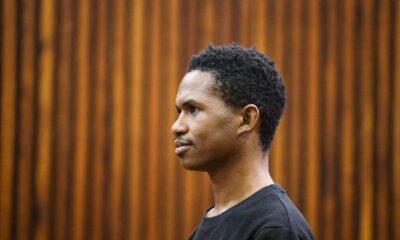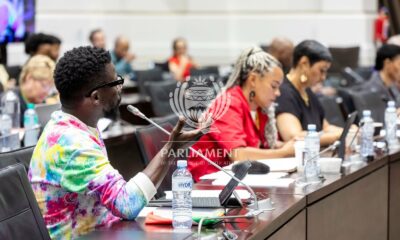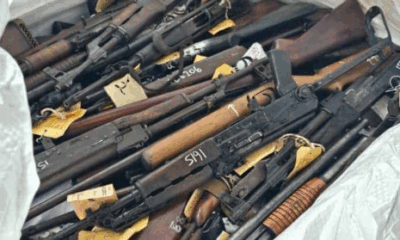News
Cachalia Stands Firm: No Apology for Critiquing Mkhwanazi’s Combat Uniform

Cachalia Refuses to Apologise Over Uniform Critique
Acting Police Minister Firoz Cachalia has drawn a line in the sand, refusing to apologise for remarks about KwaZulu-Natal police officer Nhlanhla Mkhwanazi appearing in full combat gear during a press briefing on July 6. The comments have sparked debate over military imagery in civilian policing and the balance between public discourse and operational protocol.
When pressed by MK Party MP Vusi Shongwe to apologise, Cachalia clarified that his remarks were never intended as an insult. “There is no need for me to apologise about something that was not intended badly. There was no insult and so I don’t apologise,” he told Parliament on Wednesday.
Concern Over Military Imagery in Civil Policing
Cachalia explained that his concern centered on public perception. “I was worried about the image of someone dressed like a soldier appearing publicly to make statements. In a democracy, we must maintain a clear separation between political authority and the military,” he said.
He added that Mkhwanazi’s appearance, while armed and in full Task Force Unit uniform, conjured images of a coup d’état, highlighting the tension that can arise when police authority is publicly displayed in a militarised form.
Despite his critique, Cachalia acknowledged the importance of Mkhwanazi’s allegations and said the acting minister fully supports whistle-blower protections.
PKTT and Crime Intelligence: Reforms in Progress
During his testimony, Cachalia also addressed broader policing challenges, including the disbandment of the Political Killings Task Team (PKTT) by former Police Minister Senzo Mchunu. He admitted he deliberately did not engage in a handover with Mchunu to avoid influencing ongoing investigations or prejudging matters.
Cachalia expressed support for the continued operation of the PKTT, emphasizing the need for prosecution-led strategies against organised crime and a dedicated capacity for intelligence-led policing. He noted ongoing reforms within Crime Intelligence, stressing the need for stability and professionalisation to tackle organised crime effectively.
Reflections on Governance and Accountability
Cachalia underscored the importance of consultation and mutual respect between political heads and departmental leadership, saying that the breakdown of these relationships compromises institutional functioning. He suggested that proper engagement and communication could have mitigated the controversy surrounding the PKTT’s disbandment.
He also floated the possibility of reassessing the appointment process for the executive director of the Independent Police Investigative Directorate (IPID), hinting at future reforms to strengthen police oversight and accountability.
Public Reaction and Democratic Debate
Social media has been divided over Cachalia’s refusal to apologise. Some critics argue that public officers should maintain neutral appearances to avoid militarised intimidation, while others commend Cachalia for defending open, transparent public discourse.
Cachalia himself framed the controversy as a healthy democratic debate, stating: “I shared my initial impressions with the public in an open way. If my comments have occasioned public discourse, that is a good thing.”
The Mkhwanazi uniform saga underscores broader tensions in South African policing: the balance between authority and public perception, operational protocol and democratic accountability, and the urgent need for reform in intelligence and specialised policing units.
Cachalia’s stance reflects a commitment to principled oversight while acknowledging the sensitivities of armed public appearances, a reminder of the complex terrain that law enforcement navigates in South Africa’s democracy.
{Source: IOL}
Follow Joburg ETC on Facebook, Twitter , TikTok and Instagram
For more News in Johannesburg, visit joburgetc.com



























